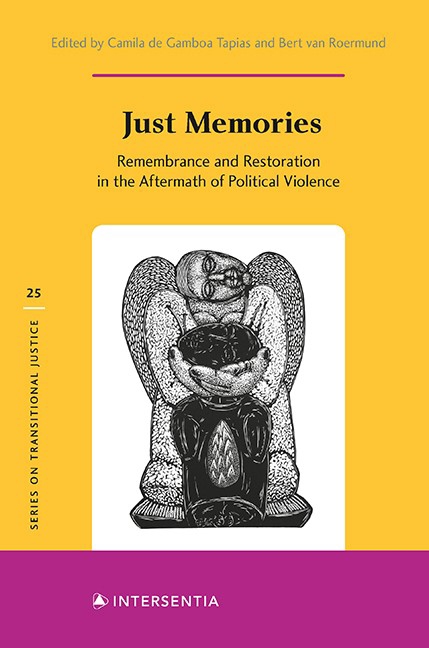Chapter 2 - The Duty to Remember a Violent Past: A Restorative (Re)Construction of Our Identity
Published online by Cambridge University Press: 11 February 2021
Summary
INTRODUCTION
This chapter offers a reflection on the role that the duty to remember could play as a restorative measure against large-scale past abuses and as a mechanism to transform harmful identities. A true knowledge of the past is the first step of a critical reflection on the institutions, traditions and identities that have contributed to violence and the degradation of relations between members of a given political community. As was advanced in the Introduction to this volume, our critical remembrance proposal explores the possibility of becoming and staying critical toward our memory of suffering. However, this action of remembering, as we will discuss in this chapter, could not be guaranteed without a perspective of justice from which the value of the human dignity of all its members is established or restored in terms of inclusion and equality.
To that effect, Section 2 involves a philosophical discussion of the ideas of identity and tradition and the way that these notions are intertwined. Section 3 develops the notion of the duty to remember, particularly in the case of a troublesome past. It raises the common objections to a moral obligation with respect to past generations, and the importance of traditions and promises among generations in understanding this duty. Section 4 addresses the perils derived from the duty of remembering a difficult past, and the final section describes certain historical narratives that are able to contest and eventually transform harmful identities that are constructed in situations of political violence.
THE CONSTRUCTION OF IDENTITY AND TRADITION
A basic condition for being an active member of a political community is being recognized by the rest of the members as a moral agent, i.e. as a person who is able and has the right to make his or her own decisions, and in regard to others as being responsible for his or her own actions. However, moral agency is not a capacity that one possesses from birth. Rather, it is a capacity that one acquires through a process of socialization. At the same time, as moral psychologists have shown, the development of moral agency depends on the way that the social identity of the individual is constructed. From a hermeneutic viewpoint, personal and social identity is not based on some essence, but is constructed by traditions.
- Type
- Chapter
- Information
- Just MemoriesRemembrance and Restoration in the Aftermath of Political Violence, pp. 21 - 44Publisher: IntersentiaPrint publication year: 2020



